The identity of Australia is ostensibly tied to agriculture. The vision of a man astride a horse mustering cattle with an Akubra hat is iconic, speaking of a romanticised masculinity where white man tamed the wild terra nullius, whipping it into submission. So romanticised is the image of the pleasures of the bush and the men who wander there it has been the subject of poetry, most famously Paterson's 'Clancy of the Overflow', where the office man wishes he was under the stars like the drover Clancy:
In my wild erratic fancy visions come to me of Clancy Gone a-droving ‘down the Cooper’ where the Western drovers go; As the stock are slowly stringing, Clancy rides behind them singing, For the drover’s life has pleasures that the townsfolk never know.
And the bush hath friends to meet him, and their kindly voices greet him In the murmur of the breezes and the river on its bars, And he sees the vision splendid of the sunlit plains extended, And at night the wond’rous glory of the everlasting stars.
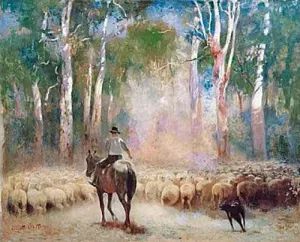
The Australian landscape gives meaning to the settlers and colonists drawing resources for this relatively new European nation. It was a thing to be overcome and tamed, and the men who did it were lauded as heroes. Still are, by all accounts - 'our farmers' battle drought and flooding rain to put food on the table of the nation.
Yet the taming of the nation has had terrible environmental consequences. Europeans introduced rabbits, cats and foxes, causing the extinction of native species. Hooved creatures compacted the soil, impacting the way rain soaks into the soil, silting up the rivers. Removal of vegetation to make way for wheat and other annual crops affected groundwater and increased soil salinity.
This lack of foresight and blindness is summed up beautifully by John Kinsella's poem 'Why they Stripped the Last Trees from The Banks of the Creek':
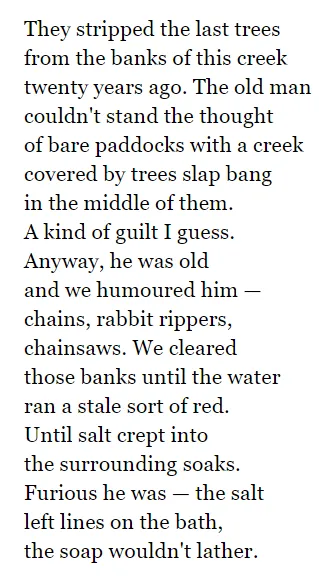
Much debate centres around how the land can be managed in more sustainable ways whilst still protecting the livelihood of farmers. It's gone beyond simple bailing out by the government into what next. Whilst they ignored the 'before', discounting Aboriginals as nomad savages, many are redressing this falsehood and exploring what Australia looked like before 1788. Bruce Pascoe's 'Dark Emu' argues that Indigenous Australians farmed, lived in villages, harvested grain and built aquaculture before Europeans. And it's to this that Australians need to look to figure out sustainable practices that allow for food sovereignty - farming isn't a heroic, noble preoccupation that has formed the centrepoint of Australian mythology for over 200 years - it's wanton destruction that is leaving us with a wasteland.
That's why images like this are also iconic:
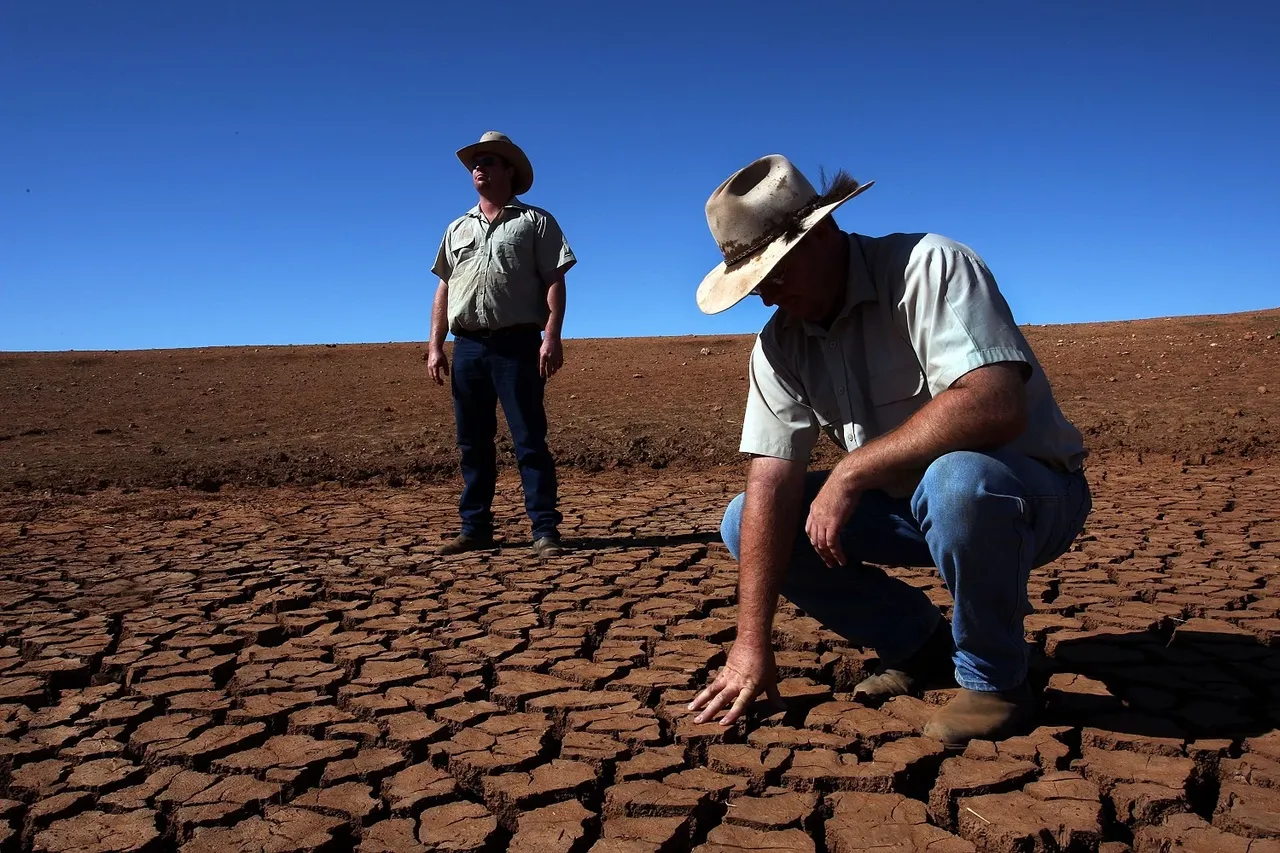
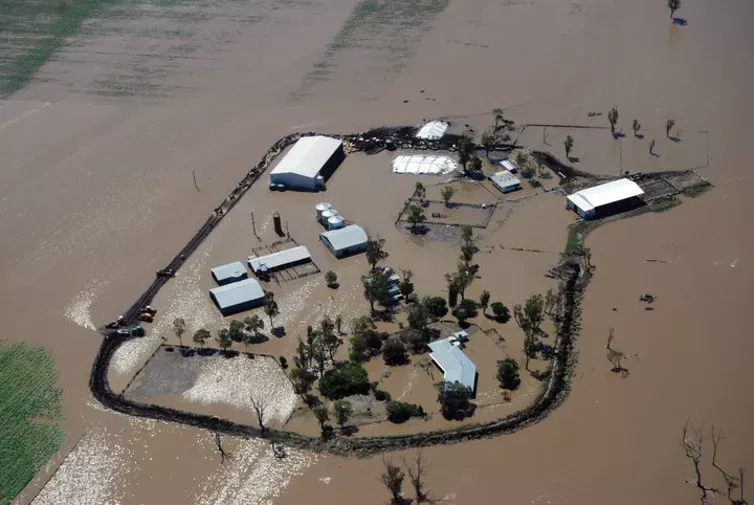
Many call for the adoption of indigenous food cultivation - not just here but worldwide - as an anathaema to Big Ag, adopting these ancient practices to consider new practices of crop rotation, companion planting, agroforesty and water collection. It's heartening to see this kind of thinking come out of the Australian landscape - whether it's too late or not is the question.
What do we do to counter the blindness of agriculture? If we can't do anything about such a huge system that's leading us toward an apocalypse, what do we do to gain food sovereignty for ourselves?
@sagescrub asked of us in this post this week:
What are you doing to claim food sovereignty for yourself or your community, and why?
A few years ago I started a Facebook group for my shire, centred around gardening and food production. I wanted to connect to people who might be growing food themselves and was hoping we could swap food and wisdom to be more independent of the supermarkets. It quickly became one of the biggest groups in the area, encompassing many towns and gaining over 2,000 people really quickly - far too quickly for me to manage. People were really interested in food sovereignty, whether it was for environmental reasons or for money, or just as a hobby. The barter system was incredible - bags of lemons swapped for bunches of basil, potatoes swapped for comfrey fertiliser. In the end, I just couldn't keep up the admin side of it and let it go in favour of a more localised group confined to my town and the one over, which has now grown to 200 people.
I live in a rural area that was once a big wool production area and at the edge of a wheatbelt too. There's a lot of farming folk around here, but there's also a lot of people with small acreages or at least big blocks of land where they have the capability of growing food for their own table. It's been fantastic to share inspiration, seeds, plants and knowledge, and we've been having monthly food swaps. So succesful has this been that the town over from us has started their own group and also do swap meets, and many members are in both groups. As much as I hate Facebook, these groups have been really empowering for many people.
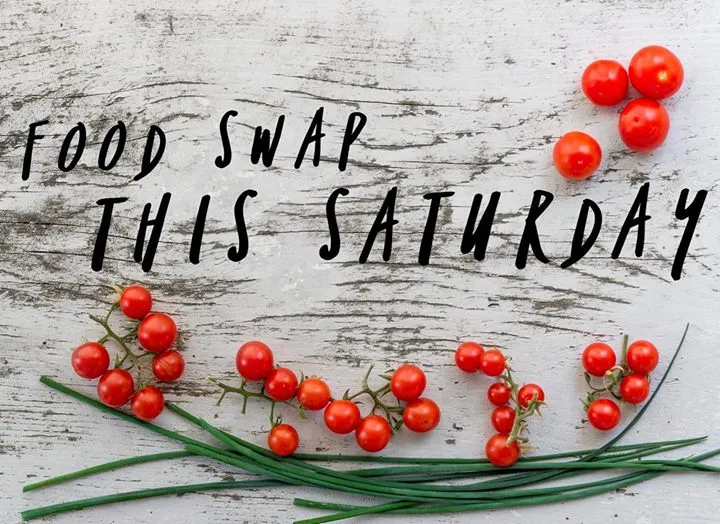
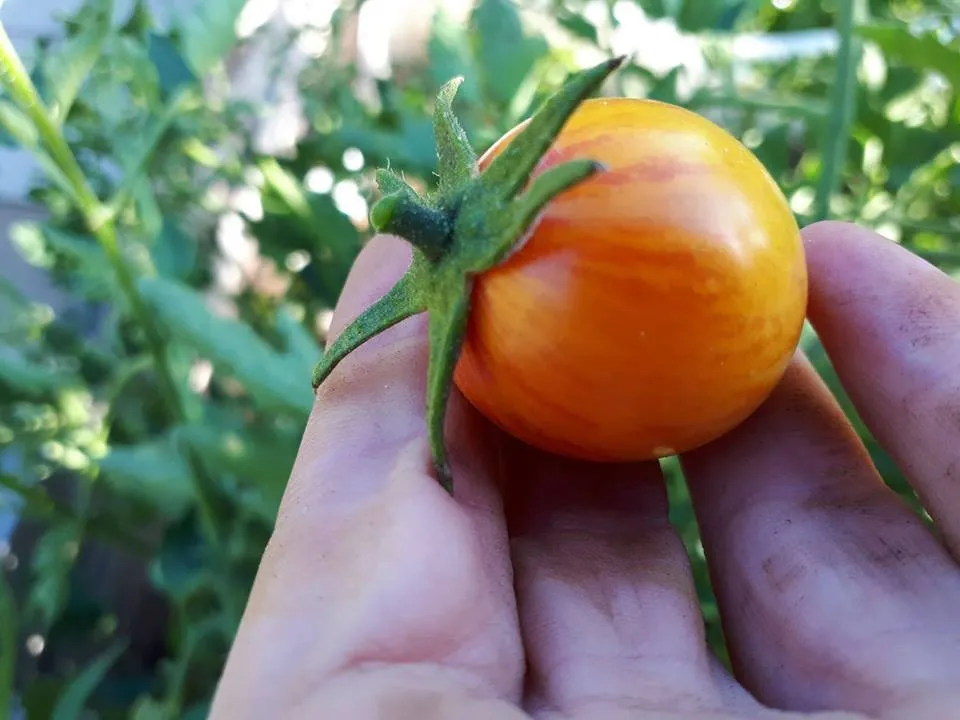
I think a comfrey plant from my patch is in about thirty gardens across the area and is used for fertiliser. That's pretty cool. Whenever I have excess produce, I list it on the site for free. I have the time, the energy and the enthusiasm and know how to grow more than I need and see it as an act of rebellion - with every meal made from my garden, I take pressure of the agricultural machines that are destroying my country. Every bit from a meal in my garden means that Big Pharma, Big Ag and Big Food.
It's a mini revolution in dirt and seeds.
And it's more than that - by being in charge of as much of our food as possible, we:
- refuse toxic ingredients in the form of pesticides
- nourish our bodies with real food, increasing our immune systems
- keep money in our pockets not in companies who just want to profit
- provide for ourselves so we won't go hungry in times of political turmoil
- help not only protect the environment, but nurture it locally.
We haven't been able to go too crazy with big crops as we don't have time due to work, and to be honest, grains aren't really a big part of our diet. Protein takes the form of eggs from our chickens or we barter when we can for milk to make cheese, when I fancy it. We don't eat a lot of meat, but have a friend who drops us off kangaroo, rabbit and sometimes venison for the freezer, and if we want other meat we buy it locally. I've learnt to dry or preserve most of our excess produce - cupboards full of preserved lemons, artichokes and tomato sauces are just beautiful mid winter and make me feel pretty clever. No way am I anywhere near @walkerland's self sufficiency but I think I could get there if I quit work - here's hoping! I know I can when it comes down to it - we're just lucky we don't have to quite yet. We just do what we can as much as we can.
I was rifling through old photos the other day and found this one - the humble beginnings of our place. I find it hilarious as we had no idea what we were doing. Our five acres was once used to run cattle and keep horses, but the soil was pretty good - no clay, thankgod - and just needed a lot of organic matter. Before we got the compost sorted out we were carting in a lot of horse, chicken, and alpaca manure from farms in the area. Now it's a jungle out there - I just went for a walk around the garden with my parents and felt pretty proud with just how much produce was coming out of the place - hops, rhubarb, nectarines, quinces, plums, apples, greens, zucchini, fennel seeds, eggs, honey, tomatoes, cucumber, grapes, potatoes, artichokes - the list goes on. It is definitely not the wasteland you see in this photo!
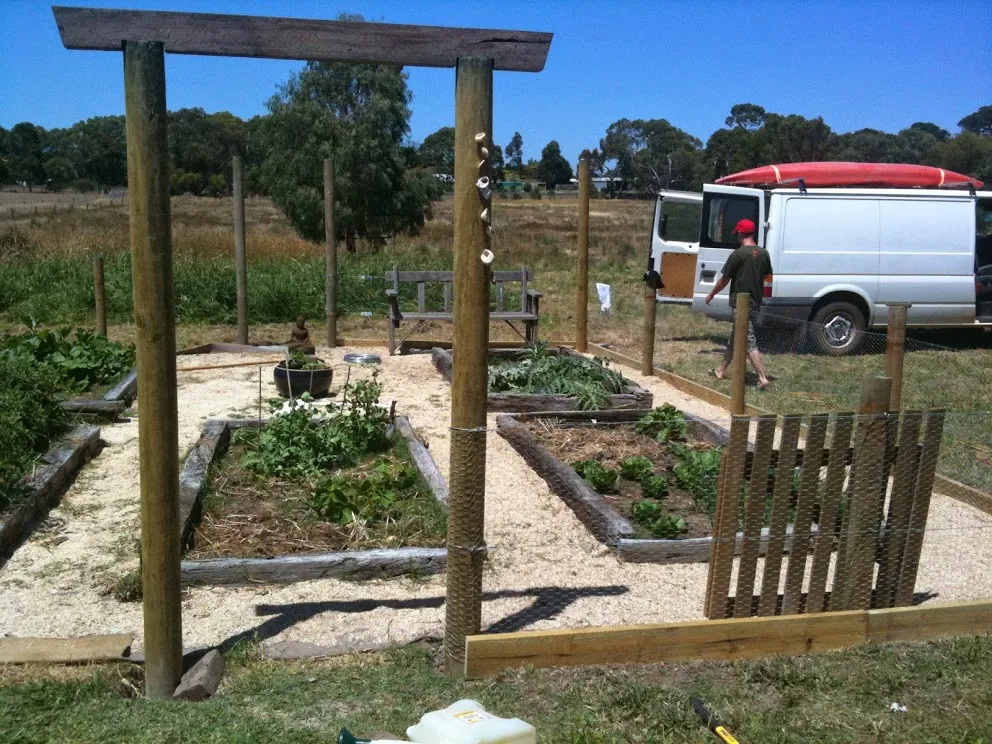
And of course we collect our own seeds as much as possible, and if not, buy organic heirloom seeds to increase biodiversity as much as possible. We plant for bees as well as ourselves. Lots of herbs for medicinal tinctures, teas and eating. We've also planted some two hundred native trees around the property which are starting to create a microclimate and more shade for both us, the plants and the birds. We hope that one day someone will look at this place and be glad we worked so hard to create it - even if we're not around to enjoy it, hopefully it'll create some food independence for them.

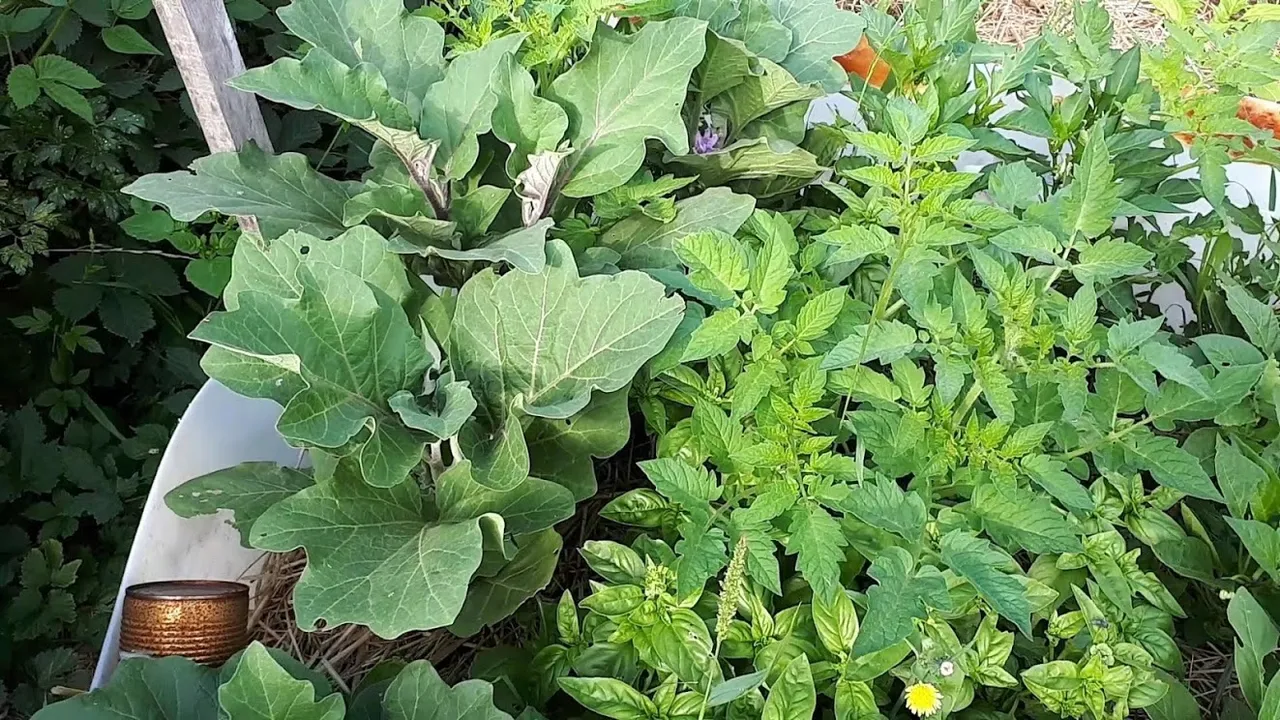
I'll end this post with @sagescrub's passage, framing his challenge to all Steemians. I think it sums it up really nicely, and the questions therein are now for you, dear reader, to also answer:
I hope that this challenge can inspire us to inspire each other, share knowledge, resources and solutions. Inform those that are un-informed. Help those that need help. I personally am so past complaining about our problems. I am past anger. I am ready for action and ready to make a difference in our world. How well can we tune our message? How far can we send our message? How many can we inspire to choose resilience?